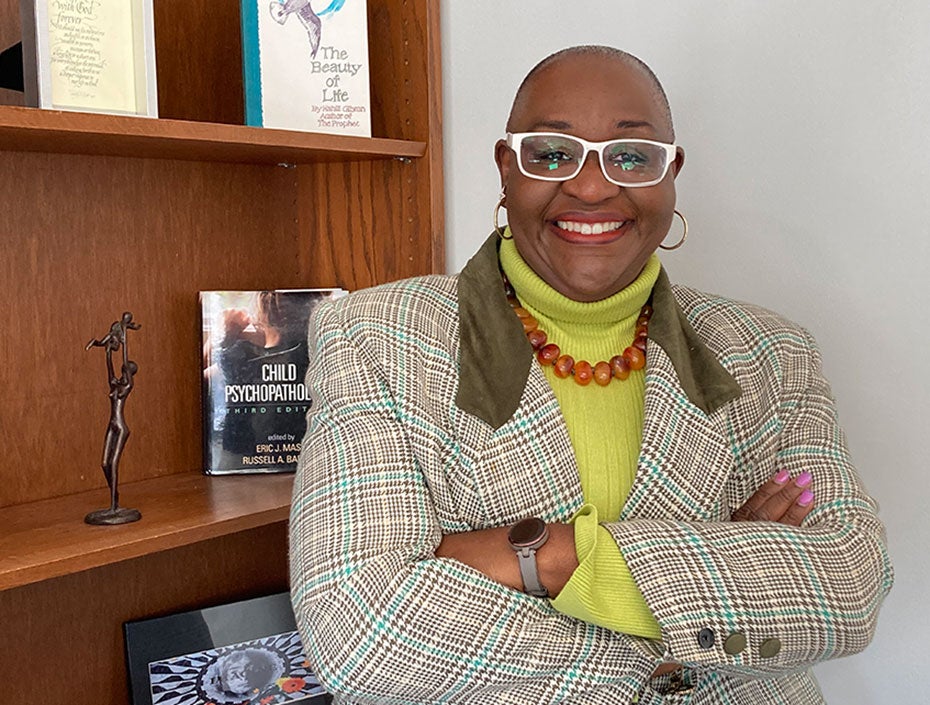How one alumna works to create lasting change in her community
Mary Louise Tatum (NUR ‘20) is a lifelong learner. In addition to holding two bachelor’s and two master’s degrees, she has used her 26-year career as a behavioral health nurse to learn “what makes people tick.”
“I would have been an anthropologist, if I knew that was an option,” Tatum said with a laugh. Her passion for culture and love of travel have led the East Cleveland native to live in Mississippi, Zambia and, for one week, a Washington, D.C., homeless shelter to learn more about the vulnerable population.
Now, Tatum is an advanced practice registered nurse in outpatient psychiatry at Cleveland Clinic—and is active in her hometown, ”redefining nursing and health care by being engaged at the grassroots level.” She manages a community outreach program through the Cleveland Council of Black Nurses and works with Faye Gary, EdD, RN, the Medical Mutual of Ohio Kent W. Clapp Chair and Professor of Nursing, on Case Western Reserve’s Provost Scholars Program, which pairs middle and high school students in Cleveland and East Cleveland with faculty and staff mentors from the university.
What has your experience been as a Provost Scholars mentor?
It has been incredibly rewarding. Ten years ago, my definition of an ‘underserved population’ was a group of people whose physical needs, like food and shelter, weren't being met. And those tangible pieces are important—but without self-esteem and a knowledge of the system they live in, the problem still exists. And that’s where mentoring comes in.
When a white kid from the suburbs goes off to college, they know they can call their dean or a counselor to ask for help. But a student from a different background—be it racially, culturally or socioeconomically different—may feel intimidated or not even be aware of certain resources. You can give them a scholarship to go to school, but you haven’t taught them to advocate for themselves.
The same goes for teaching people to speak up for themselves in health care spaces, where they may be marginalized to the point of not receiving proper care. It’s challenging because, to better understand someone’s situation and teach self-advocacy, you have to build a relationship and establish trust. But that’s the part that excites me.
You know the African proverb that says, ‘It takes a village to raise a child’? It’s true! And Dr. Gary has created—and is expanding—that village as director of Provost Scholars.
She launched a fitness study with the parents of the Provost Scholars through which we provide free health education and, prior to the pandemic, free blood pressure tests. Preventive programs like these are absolutely crucial because when we bring health care directly into the community, we decrease emergency room and urgent care visits that cost patients and hospitals a lot of money down the line.
What advice would you give to others who want to help their community?
Be creative in helping your community find resources. Just start calling people! When you meet and talk with people, you’ll gain new information and connections that will lead you to the right project. And the best thing you can do? Listen.
What’s next for you?
I absolutely love public health and want to focus my career on that. I’ve been doing it unpaid for years! And I plan to pursue a PhD one day so I can learn how to build and lead community programs.
I want to die knowing I truly did my best, elevating as many people as possible up this rocky mountain we call life.
—Carey Skinner Moss


